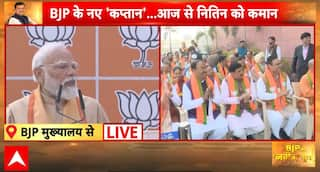Game Of Skill Or Game Of Chance? Delhi-Based Policy Think Tank May Have Come Up With An Answer
Skill-Based Matchmaking aims to offer improved accuracy and flexibility by integrating elements from newer models such as Glicko and TrueSkill.

A new system devised by a physicist offers a potential resolution in the ongoing debate over distinguishing games of skill from those of chance. Recently, a Delhi-based policy think tank, Evam Law and Policy, released a report introducing a method of skill assessment inspired by the ELO system, developed by American-Hungarian physicist Arpad Elo, renowned for its application in chess.
Why Is Defining A Game So Puzzling?
Since the inception of the Public Gambling Act in 1867, defining games of skill has been a contentious issue in India, leading to numerous legal battles. Notably, in 1957, the Supreme Court adjudicated that crossword puzzles constituted a game of skill. However, the rise of online gaming has intensified legal disputes. Despite attempts by states like Karnataka, Tamil Nadu, and Kerala to ban online skill-based games for monetary gain, their efforts were thwarted by state high courts.
Evam's new framework, named Skill-Based Matchmaking (SBMM), aims to provide clarity between games reliant on skill and those of chance. SBMM pairs players based on their skill levels, ensuring equitable and competitive matchups.
What Is SBMM?
Drawing inspiration from Elo's system, SBMM adopts a statistical approach devoid of subjective bias. It aims to offer improved accuracy and flexibility by integrating elements from newer models such as Glicko and TrueSkill.
According to Shashank Reddy, founder of Evam Law and Policy, the implementation of SBMM necessitates a meticulously designed skill-rating model. Factors such as relative computation, mean value representation, and rapid convergence are crucial for ensuring fair gameplay. Reddy emphasises the importance of striking a balance between accuracy and simplicity in selecting a user-friendly skill-rating model.
How SBMM Matters For Real-Money Gaming
Reddy asserts that SBMM holds significance in the Indian real-money gaming (RMG) sector from both legal and policy perspectives. Legally, it aids in distinguishing games of skill from chance, while from a policy standpoint, SBMM promotes fairness and responsible gaming practices in online RMGs.
Related Video
News headlines at this hour in fatafat style | 6 December 2021







































